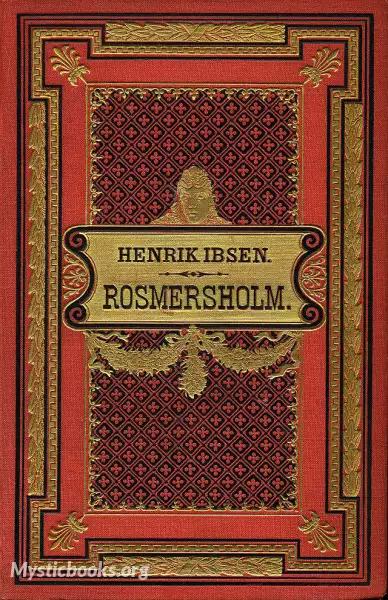
Rosmersholm
by Henrik Ibsen
'Rosmersholm ' Summary
The play opens one year after the suicide of Rosmer's wife, Beata. Rebecca had previously moved into the Rosmer family's manor, Rosmersholm, as a friend of Beata, and she lives there still. It becomes plain that she and Rosmer are in love, but he insists throughout the play that their relationship is completely platonic.
A highly respected member of his community, both by virtue of his position as a clergyman and his aristocratic family, Rosmer intends to support the newly elected government and its reformist, if not revolutionary, agenda. However, when he announces this to his friend and brother-in-law Kroll, the local schoolmaster, the latter becomes enraged at what he sees as his friend's betrayal of his ruling-class roots. Kroll begins to sabotage Rosmer's plans, confronting him about his relationship with Rebecca and denouncing the pair, initially in guarded terms, in the local newspaper.
Rosmer becomes consumed by his guilt, now believing he, rather than mental illness, caused his wife's suicide. He attempts to escape the guilt by erasing the memory of his wife and proposing marriage to Rebecca. But she rejects him outright. Kroll accuses her of using Rosmer as a tool to work her own political agenda. She admits that it was she who drove Mrs. Rosmer to deeper depths of despair and in a way even encouraged her suicide—initially to increase her power over Rosmer, but later because she actually fell in love with him. Because of her guilty past she cannot accept Rosmer's marriage proposal.
This leads to the ultimate breakdown in the play where neither Rosmer nor Rebecca can cast off moral guilt. She has acknowledged her part in the destruction of Beata. They can now no longer trust each other, or even themselves.
Rosmer then asks Rebecca to prove her devotion to him by committing suicide the same way his former wife did—by jumping into the mill-race. As Rebecca calmly seems to agree, issuing instructions about the recovery of her body from the water, Rosmer says he will join her. He is still in love with her and, since he cannot conceive of a way in which they can live together, they will die together. The play concludes with both characters jumping into the mill-race and the housekeeper, Mrs. Helseth, screaming in terror: "The dead woman has taken them."
Book Details
Authors
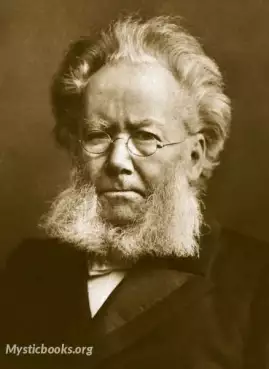
Henrik Ibsen
Norway
Henrik Johan Ibsen was a Norwegian playwright and theatre director. As one of the founders of modernism in theatre, Ibsen is often referred to as "the father of realism" and one of the most influentia...
Books by Henrik IbsenDownload eBooks
Listen/Download Audiobook
- Select Speed
Related books

Mikado, Or The Town Of Titipu by W. S. Gilbert
Set in the fictional Japanese town of Titipu, "Mikado" tells the story of Nanki-Poo, the son of the Mikado of Japan, who has fled his father's court a...
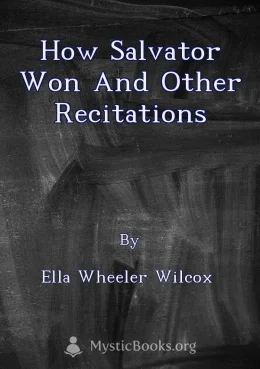
How Salvator Won and Other Recitations by Ella Wheeler Wilcox
This collection of poems by Ella Wheeler Wilcox, titled "How Salvator Won and Other Recitations," presents a selection of her work specifically chosen...
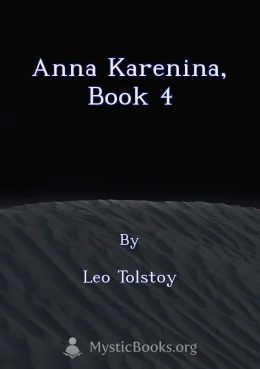
Anna Karenina, Book 4 by Leo Tolstoy
Anna Karenina is an epic novel by Leo Tolstoy, first published in 1877. It is widely regarded as one of the greatest works of literature ever written....
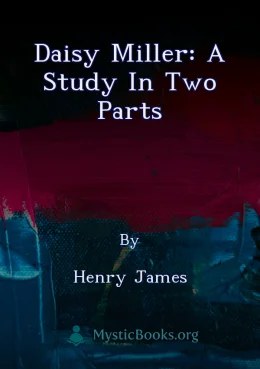
Daisy Miller: A Study in Two Parts by Henry James
Daisy Miller is an 1878 novella by Henry James. It portrays the confused courtship of the eponymous American girl by Winterbourne, a compatriot of her...

Рассказы by Leo Tolstoy
This collection of short stories by Leo Tolstoy, intended for Russian language learners, presents a selection of his most poignant and thought-provoki...
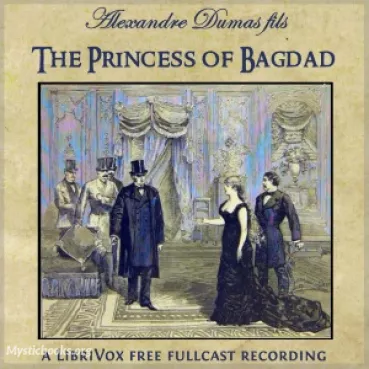
The Princess of Bagdad by Alexandre Dumas fils
Embark on a captivating adventure into the heart of the Arabian Nights with Alexandre Dumas fils's enthralling novel, "The Princess of Bagdad." Prepar...

Shakespeare Monologues Collection vol. 16 (Multilingual) by William Shakespeare
This book offers a collection of monologues from Shakespeare's plays, presented in multiple languages. It features selections from both well-known and...

Abel Sánchez by Miguel de Unamuno
This is a story of two friends, Joaquín and Abel, whose friendship is destroyed by Joaquín's envy of Abel and his own personal failures.

Triste Fim de Policarpo Quaresma by Lima Barreto
Triste Fim de Policarpo Quaresma é uma obra satírica e crítica que explora as complexidades do nacionalismo brasileiro no início do século XX. Através...
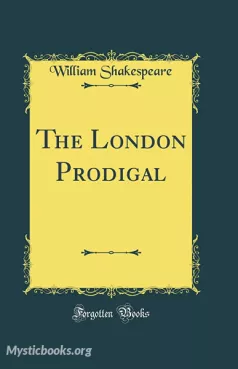
The London Prodigal by William Shakespeare
It is the story of a young man named Frank Wellborn, who leaves his home in the country to seek his fortune in the city. The play explores themes of...
Reviews for Rosmersholm
No reviews posted or approved, yet...